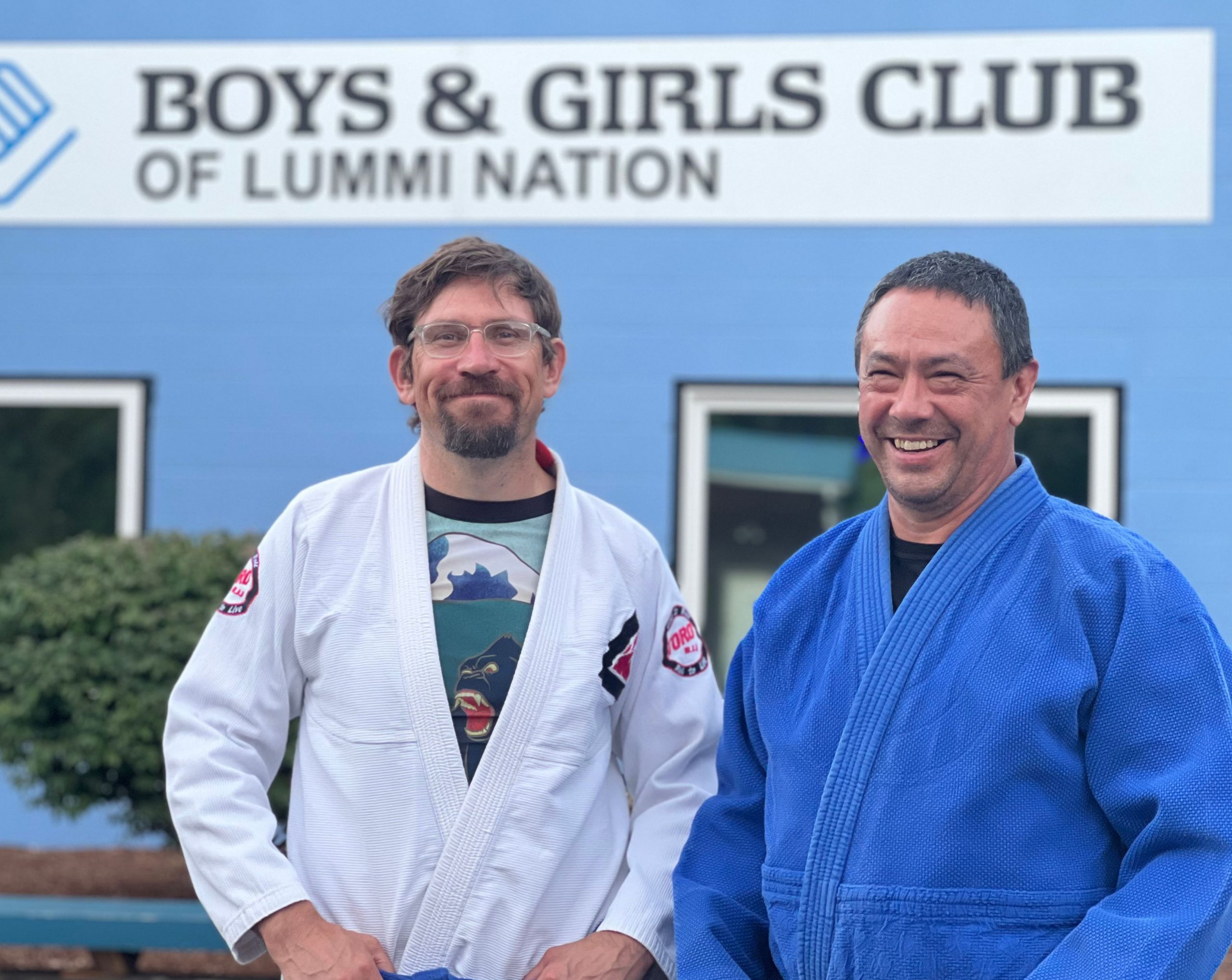By Alison Laurio
Ryan Tolman is a clinical social worker in private practice who specializes in anxiety and stress, and sees clients online and in person in his Bellingham, Wash., office. He also practices Brazilian jiu-jitsu, and has taught a martial arts training course for kids. He says activities like jiu-jitsu can help “take you away from your troubles,” especially when you’re growing up.
Tolman’s therapy work is mainly with teenagers and young adults who have stress, anxiety and depression, as well as people with trauma history. “I address negative self-talk, like ‘I’m a disappointment’ or ‘I’m not good enough’ and work to replace this with ‘I can do my best’ or ‘I’m OK regardless.’ This might seem easier said than done, but I believe if thoughts are the current source of anguish, then thoughts can be the cure.”
Tolman went back to school at age 37 to earn his MSW and said he became interested in mixed martial arts after watching matches on TV.
“I was at a local gym lifting weights, and there was a guy there who ran a (mixed martial arts) gym,” he said. “He turned out to be a really nice guy, and we arranged for him to train myself and my daughters (then ages 9 and 13) in kickboxing. We all really enjoyed it, and eventually I switched to jiu-jitsu because my wife was worried about me getting knocked out.”
Jiu-jitsu doesn’t emphasize punching or kicking and is much more defensive than kickboxing, Tolman said. “You can control the space and stay out of range. You can get in close so the other person can’t strike you.”
That keeps both people safe, he said, and “even if somebody attacks you, you don’t necessarily kick or punch.”
“I practice Brazilian jiu-jitsu, which was originally intended to neutralize physical attacks without harm to yourself or the attacker,” Tolman said. “If someone says ‘tap’ or taps you, you let go. It’s all about consent. It’s like stop, no matter what, and if you don’t, there’s no second chance. You’re just gone.”
Pictured is Ryan Tolman, MSW, LICSW, left, and Allan Hillaire of Lummi Nation (Photo by Ambur Tolman.)
Read the full story in the NASW Social Work Advocates magazine.




